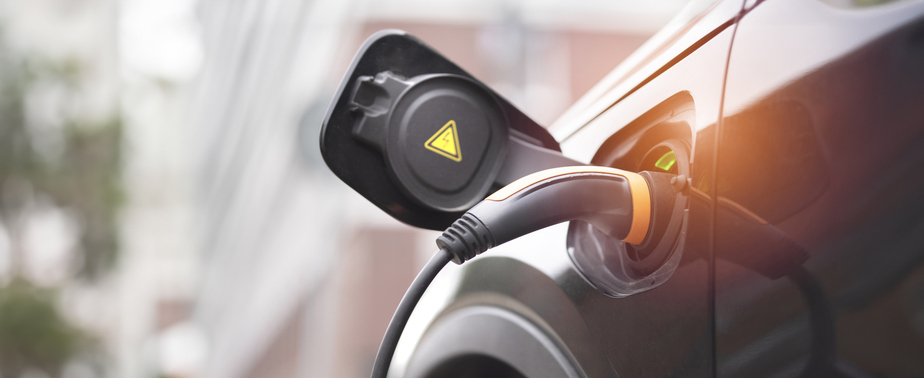The global shift toward electric vehicles (EVs) is transforming how we think about transportation, energy consumption, and infrastructure. One of the key aspects of this transition is the installation of EV car chargers, which have become increasingly important as EV adoption grows. In this article, we will explore the future of EV car charger installation, highlighting emerging trends, technologies, and essential considerations that will shape the landscape of this industry in 2024 and beyond. Whether you’re an EV owner or someone looking to stay ahead of the curve in the evolving world of electric mobility, understanding the dynamics of charger installation is crucial.
1. The Growing Demand for EV Chargers
The demand for EV chargers is expected to surge as more consumers transition to electric vehicles. Government incentives and environmental concerns are driving this shift, and automakers are increasing the production of electric vehicles to meet growing consumer interest. As the adoption of EVs rises, the infrastructure needed to support them, particularly home and public charging stations, will become a critical area of focus. The future of EV charger installation will need to accommodate a wider array of charger types and configurations to ensure accessibility and convenience for drivers.
2. Home Charging Solutions: Convenience and Cost-Efficiency
Home charging solutions are becoming the preferred method for many EV owners due to their convenience and cost-efficiency. Installing a Level 2 charger at home allows users to charge their vehicles overnight, ensuring they start each day with a full battery. With advancements in technology, modern home chargers are faster, more efficient, and equipped with smart features, such as app connectivity for monitoring energy use and scheduling charges. As more homeowners look to install chargers, it’s essential to understand the specific requirements for installation, including electrical panel upgrades and local permitting processes.
3. The Role of Fast Chargers in Public Spaces
Fast chargers, also known as DC fast chargers, are crucial in reducing the time required to charge an EV. These chargers are typically installed in public spaces like shopping centers, highways, and parking garages to cater to drivers on long trips or those without home charging capabilities. As EV adoption increases, the demand for fast chargers will grow, requiring both public and private entities to invest in infrastructure. The future of public EV charging will see the expansion of fast charger networks, with an emphasis on improving accessibility, affordability, and convenience for all drivers.
4. Smart Charging: The Intersection of IoT and EVs
Smart charging is a key innovation that combines the Internet of Things (IoT) with electric vehicle technology. These chargers use intelligent systems to optimize energy consumption based on factors such as time of day, grid demand, and the vehicle’s battery state. With smart charging solutions, EV owners can schedule charging during off-peak hours to take advantage of lower electricity rates, contributing to both cost savings and grid efficiency. In the future, smart chargers will become even more integrated with smart home systems, allowing for seamless management of energy use across various devices.
5. Solar Integration with EV Chargers
The integration of solar power with EV chargers is becoming increasingly popular as it offers a sustainable way to charge electric vehicles. Homeowners with solar panels can install EV chargers that are connected to their solar energy systems, allowing them to charge their vehicles using clean, renewable energy. This combination of solar power and EV charging is particularly appealing to environmentally conscious consumers who want to minimize their carbon footprint. As solar technology advances and becomes more affordable, we can expect a rise in the number of homes and businesses installing solar-powered EV chargers.
6. Workplace Charging: A Growing Trend
Workplace charging is an essential component of the future of EV car charger installation. As more employees drive electric vehicles, employers are recognizing the importance of offering charging stations at their facilities. Providing workplace charging options not only helps employees save time and money but also aligns with corporate sustainability goals. Many companies are investing in EV charging infrastructure to attract top talent and reduce their overall carbon emissions. In the coming years, workplace charging stations will become a standard offering, with businesses integrating charging solutions into their sustainability and employee benefit programs.
7. Overcoming Challenges in EV Charger Installation
While the future of EV charger installation is promising, there are several challenges that need to be addressed. One of the key obstacles is the need for updated electrical infrastructure in many homes and businesses. Installing a Level 2 charger often requires an upgrade to the electrical panel, which can be costly and time-consuming. Additionally, navigating local zoning laws, permitting requirements, and utility regulations can slow down the installation process. As the demand for EV chargers grows, overcoming these challenges will require collaboration between local governments, utilities, and private companies to streamline installation procedures and ensure the availability of charging infrastructure.
8. The Importance of Government Support and Incentives
Government policies and incentives play a pivotal role in the future of EV charger installation. In many countries, governments offer rebates, tax credits, and other financial incentives to encourage the installation of EV chargers in homes, businesses, and public spaces. These incentives help offset the cost of installation and make EV adoption more accessible for consumers. In addition to financial support, governments are also investing in public charging infrastructure and implementing regulations that require new construction projects to include EV charger provisions. As EV adoption continues to grow, government support will be critical in ensuring widespread access to charging infrastructure.
The future of EV car charger installation is bright, driven by innovations in technology, government policies, and growing consumer demand. From home charging solutions to fast chargers in public spaces, the landscape of EV charging is evolving rapidly. As we look ahead, smart charging systems, solar integrations, and workplace charging will play key roles in shaping the future of this industry. However, overcoming challenges such as infrastructure upgrades and regulatory complexities will require collaboration among various stakeholders. By staying informed and prepared for these changes, consumers and businesses alike can ensure they are ready for the electrified future of transportation.
As the demand for electric vehicles continues to rise, now is the perfect time to explore EV charger setup options for your home or business. Stay ahead of the curve by embracing the latest charging technologies and government incentives. Contact a professional EV charger installer today to get started on your path to sustainable, efficient, and cost-effective electric vehicle charging.






